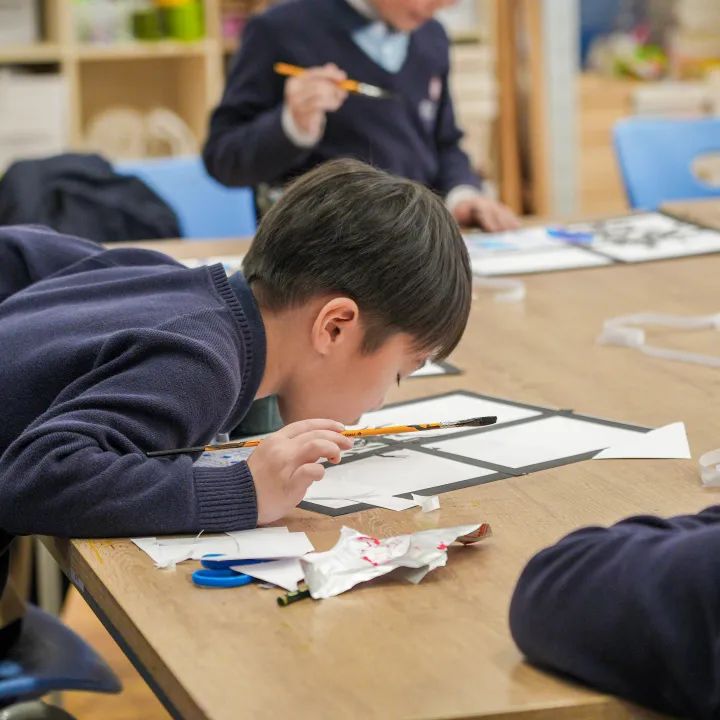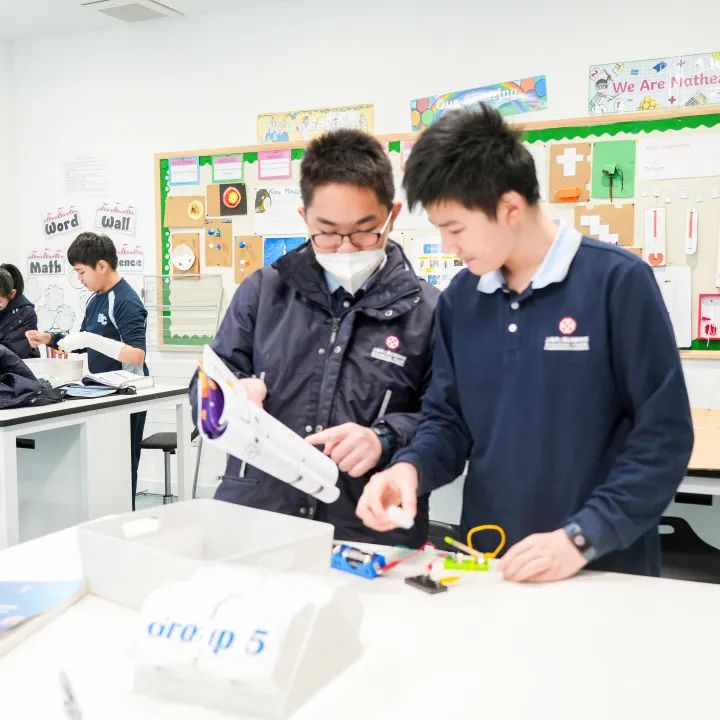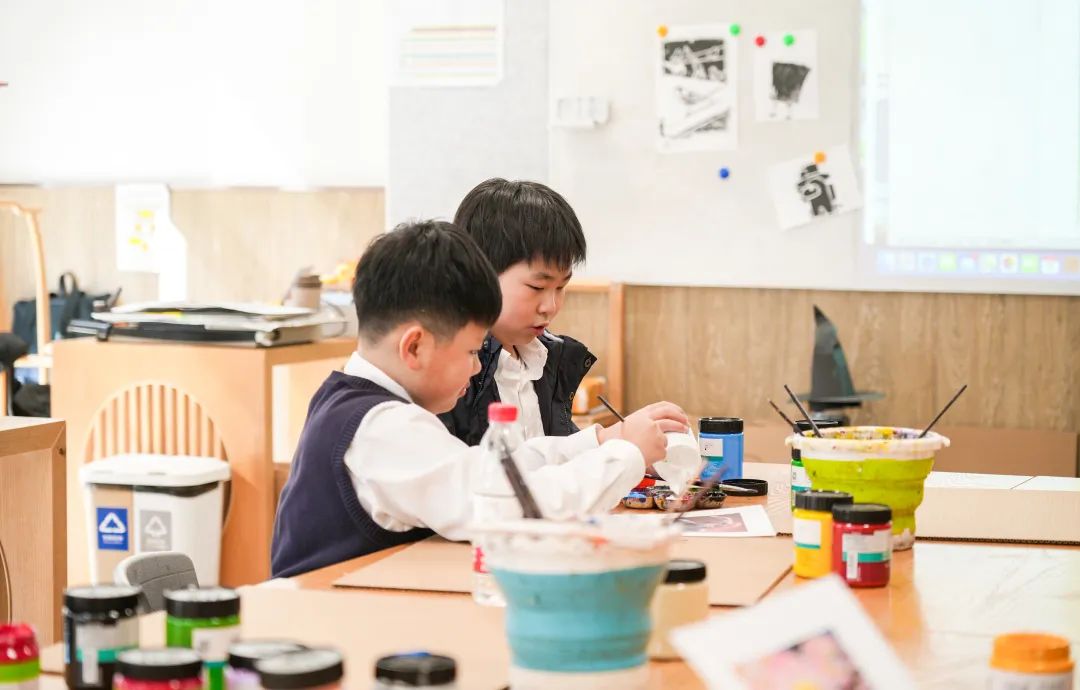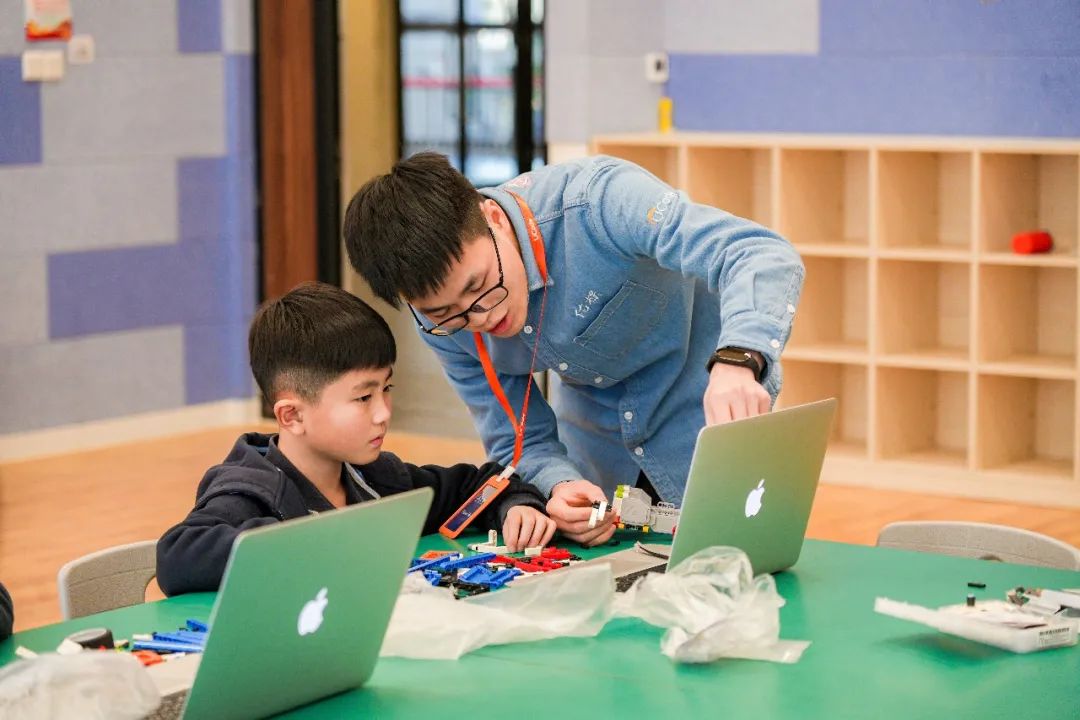Children are like seeds, each with their own personality traits and learning styles, such as visual, auditory, or experiential. Different people have different learning styles. Combined with the influence of family genetics and the environment, each child's foundation before entering elementary school is different.
At Dipont Huayao, we advocate the concept of "Whole-child Education," which focuses on the development of children's knowledge, intelligence, and their mental, emotional, and spiritual growth, gradually enabling them to have the ability to survive in the real world. In the education process, we respect the children's instincts and interests, and strive to stimulate everyone's potential and creativity.
Personalized Learning is born based on this concept. It is a curious question for many parents why students taught by the same teacher in the same classroom have different academic performances. In our view, the requirement of "consistent pace" is actually a traditional educational concept that needs to be broken.
In our campus, when children of different types gather together, teachers will use the principles of "adopt one’s good points and avoid one’s shortcomings " and "learn from others' strong points to offset one's weakness" by forming flexible learning groups, allowing children with talents to have the opportunity to showcase themselves and fully learn from the strengths of their peers. In the process of communication, discussion, division of labor, and cooperation among group members, they experience the entire process of gaining knowledge.
"Not emphasizing the mode of 'consistent pace' seems to be 'disorganized' rather than 'disoriented'. In the elementary and secondary school stages, the Chinese national curriculum outline is still the cornerstone, and the curriculum design and arrangement follow the cutting-edge standards of Common Core, Next Generation Science, and ISTE in the United States.
In language learning, Dipont Huayao equally values the native-like development of Chinese and English. Principal Jing Zou shared with us that as an international school rooted in China, we cannot lose the identity recognition of Chinese students.
"Accumulating a certain level of Chinese proficiency and understanding of Chinese culture and history is necessary. Parents who send their children to bilingual schools should change the mindset of only improving English proficiency. We hope to cultivate children into global citizens with profound humanistic heritage, embracing cultural confidence on the world stage, speaking out as Chinese people, and spreading cultural content with Chinese characteristics."
At the elementary school stage of Dipont Huayao, the language foundation of children will be firmly established, and their mother-tongue thinking will be reinforced. Not only Chinese and English teachers, but also teachers from various subjects are language guides. During class, teachers constantly introduce new vocabulary, and we ask teachers to use expressions that children can understand, to learn these words, sentences, and even advanced expressions in a simple and easy-to-understand way.
As the school enters its third year, the immersive language environment is becoming more complete. We pay special attention to the language teaching ratio of Chinese and English subjects. Similarly, Chinese and foreign teachers are also maintained in a 1:1 balance, allowing children to learn different terminologies and expressions in different subjects and cultural environments and freely switch between the two cultures.
The goal of the transition from preschool to elementary school is not only to help children enter the classroom smoothly, but also to lay a foundation for quality and habits at the beginning of becoming a student. The choice of elementary school is not only utilitarian for subsequent education, but also to find a place for children to realize their potential and enhance themselves in the crucial 5-6 years of elementary school. We can do just that.








